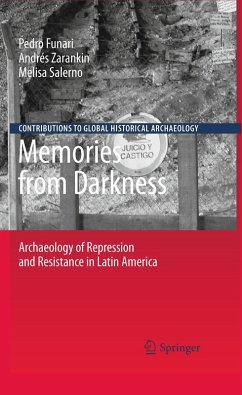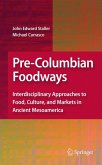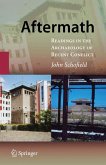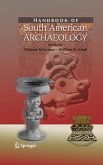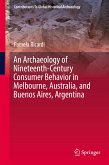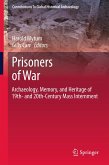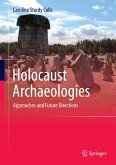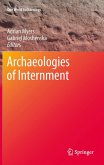The study of Archaeology in Latin America has been strongly affected by the socio-political setting of the region. The history of state repression in the 1960s-1980s is particularly challenging to study, with many holes in the traditional accounts of events. Several dictatorships (especially military governments) emerged during this period dominated by the development of the Cold War and the consequences of the Cuban Revolution. Repressive regimes remained in power for decades, until internal and international changes allowed democracy to take over a firm hold.
State terrorism included censorship, exile, detention, torture, murder, and forced disappearance. Written documents on political violence are scarce and fragmentary, with many of these sources deliberately destroyed by government authorities. New archaeological methods must be employed to reconstruct the history of the period, helping to disclose the silenced voice of victims, relatives and society as a whole.
The contributions in this important volume show the socio-political commitment of Archaeology in Latin American to shed light on the specific case of dictatorship and repression in the region. The techniques described will also provide a valuable resource for archaeologists working to understand the nature of political violence worldwide and reconstruct other historical periods without reliable written sources.
State terrorism included censorship, exile, detention, torture, murder, and forced disappearance. Written documents on political violence are scarce and fragmentary, with many of these sources deliberately destroyed by government authorities. New archaeological methods must be employed to reconstruct the history of the period, helping to disclose the silenced voice of victims, relatives and society as a whole.
The contributions in this important volume show the socio-political commitment of Archaeology in Latin American to shed light on the specific case of dictatorship and repression in the region. The techniques described will also provide a valuable resource for archaeologists working to understand the nature of political violence worldwide and reconstruct other historical periods without reliable written sources.
Dieser Download kann aus rechtlichen Gründen nur mit Rechnungsadresse in A, B, BG, CY, CZ, D, DK, EW, E, FIN, F, GR, HR, H, IRL, I, LT, L, LR, M, NL, PL, P, R, S, SLO, SK ausgeliefert werden.
Memories from Darkness, edited by Pedro Funari, Andres Zarankin, and Melisa Salerno shows us the kind of archaeology that really matters, in a particularly important way. It contains a real mixture of papers, covering different aspects of repression and dictatorship in a number of South Amiercan countries...There are theoretical papers, scientific pieces, material culture studies and first hand accounts on Brazil, Venezuela, Mexico, Bolivia, and Argentina, all adequately illustrated and, we must be thankful given the range of exciting South American scholarship presented here, with individual bibliographies for each paper. This book is about freedom of speech. None of the papers end with something as restrictive as a 'Conclusion'; rather those that choose end with 'Final Remarks'--a reminder of the importance of individuality and subjectivity when archaeology chooses to discuss matters of life and death.
Most of the book verges on shocking, but only in that minute scales to which the archaeologists here go in discussing the conditions and effects of repression are not commonly reported at the distance from which I write. Occasionally the contents of the book are downright hard...Memories from Darkness also has useful opinion pieces at its start (Laurent Oliver) and end (Martin Hall) that, rather than disrupting the distinctly South American collection of papers, serve to set them in useful wider contexts. Overall, this is an important publication. Its style feels quite 'raw', but this fits the subject matter and ethos of the book well. Required reading for contemporary and conflict archaeologists, it will also be of particular use to those among the wider world of post-medieval archaeology who are unsure as to the importance of studying the recent past and the present.
James Dixon
Post Medieval Archaeology
46/2, (2012)
Most of the book verges on shocking, but only in that minute scales to which the archaeologists here go in discussing the conditions and effects of repression are not commonly reported at the distance from which I write. Occasionally the contents of the book are downright hard...Memories from Darkness also has useful opinion pieces at its start (Laurent Oliver) and end (Martin Hall) that, rather than disrupting the distinctly South American collection of papers, serve to set them in useful wider contexts. Overall, this is an important publication. Its style feels quite 'raw', but this fits the subject matter and ethos of the book well. Required reading for contemporary and conflict archaeologists, it will also be of particular use to those among the wider world of post-medieval archaeology who are unsure as to the importance of studying the recent past and the present.
James Dixon
Post Medieval Archaeology
46/2, (2012)

